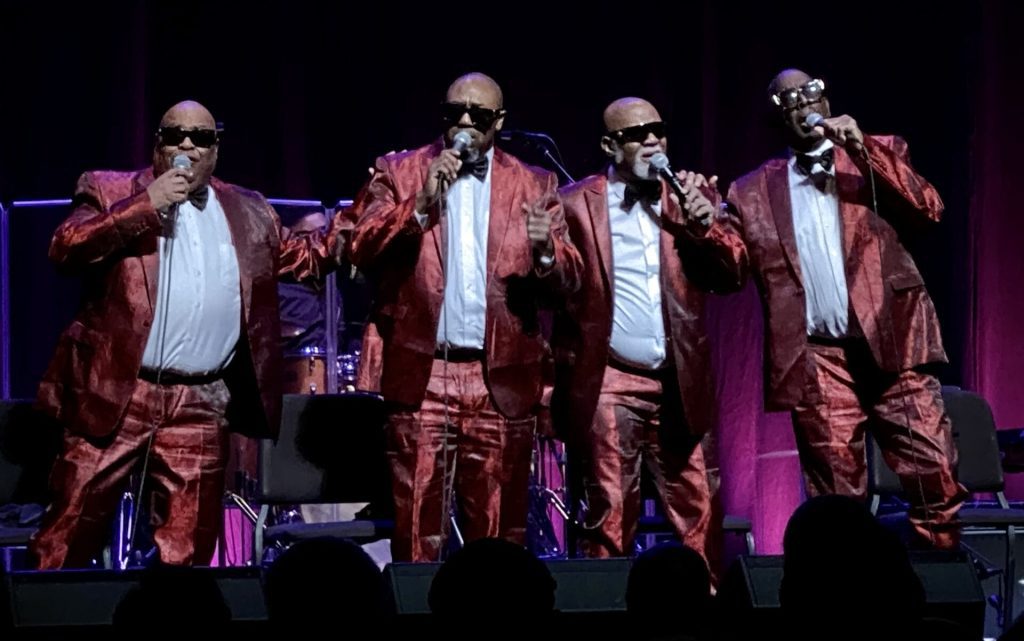
By the time the Blind Boys of Alabama got to the homestretch of their Nov. 15 show in Columbus, Ohio, the seats in Mershon Auditorium were empty as some 800 people danced and clapped along to the sonic tent revival that is “Send it on Down.” While the audience soaked in the spirit, the Blind Boys kept pushing it out in a glorious back-and-forth between fans and performers that illustrated the truism that surrounds every Blind Boys gig:
The longer the Blind Boys of Alabama are on stage, the better the crowd feels.
This is still true in spite of a new-look group that’s undergone significant changes in the year since it recorded Echoes of the South. Longtime members Ben Moore and Paul Beasley died after the sessions and 91-year-old Jimmy Carter, who was the Blind Boys’ last remaining link to their 1939 founding, retired from the road.
With longtime member Rickie McKinnie, 71, assuming the leadership spot first held by the late Clarence Fountain and, later, Carter, and guitarist/music director and 20-year group veteran Joey Williams (Robert Randolph and the Family Band) leading the way, the new, comparatively young, edition of the Blind Boys cranked out 16 songs over 90 minutes of gospel/blues/jazz/rock music that found new member J.W. being led through the audience to bestow good tidings mid-song and Sterling Glass testifying to his rapid recovery from recent surgery during “I’m a Soldier in the Army of the Lord,” and transforming the concert into a celebration of faith – and belief in the healing power of music.
While Williams and the backing trio (bass, drums and keys) simmered behind them, the four Blind Boys were led on stage wearing matching red suits with bow ties, and with hands on one another’s shoulders for guidance, they took their seats and launched into Ruthie Foster’s “Lord, Remember Me.” Before long, the singers had risen as they worked their way through “People Get Ready,” Tom Waits’ “Down in the Hole,” Willie Nelson’s “Uncloudy Day” and Norman Greenbaum’s “Spirit in the Sky,” whose sinewy rhythm had McKinnie turning 360 degrees with the music as his guide.
Williams and the bassist – who’d picked up an electric resonator guitar – dueled on a bluesy, singalong rendition of “Nobody’s Fault But Mine.” The youngest, and only sighted, Blind Boy also sung some lead within the round-robin vocals on Pops Staples’ “Friendship” and everyone sung together on Stevie Wonder’s “Heaven Help Us All.” These last two tracks appeared on Echoes and though the band that was singing them was different from the band that recorded them, the effect was the same – transportation.
Eighty-four years in, the Blind Boys can still stir the soul. And they did so all night long, but perhaps not more than on the totally believable “I Can See,” their setting of “Amazing Grace” to the melody of “House of the Rising Sun” and the encore of Wonder’s “Higher Ground,” which found Williams and the road manager playfully pretending to move chairs around so the exuberant Blind Boys didn’t try to sit with nowhere to land.
“I’m gonna work until my days are done,” the Blind Boys of Alabama had sung earlier in the evening.
And everyone in the room was likely praying they keeping singing and playing, too.
